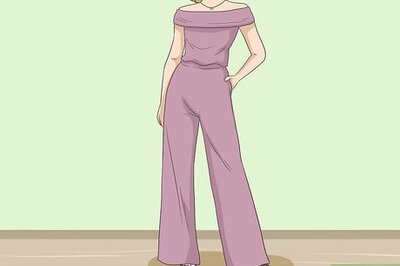
views
Avian influenza, commonly known as bird flu, was detected among birds at a poultry farm in Vasai-Virar region of Palghar district in Maharashtra, officials have confirmed. This came days after the district’s neighbouring region Thane reported similar cases.
Palghar’s district veterinary officer Dr Prashant Kamble said that some birds at the poultry farm died, after which their samples were sent for testing.
“The test results confirmed that the birds were infected with H5N1 virus. The reports were received on Friday night,” he said, adding that the situation is not serious. Kamble did not specify the number of birds that died at the poultry farm.
Earlier this week, bird flu cases were detected in Thane district after around 100 birds died at a poultry farm in Vehloli village in Shahapur tehsil. Their samples were sent to a Pune-based laboratory for test and the results confirmed that they died due to H5N1 avian influenza.
What is Bird Flu or Avian Influenza?
Avian influenza, an infection which primarily affects birds, can also infect humans. The most common type of bird flu is H5N1 which can be easily contracted by humans and other animals if they come in contact with a carrier of the virus. These viruses, have however, not gained the power to transmit from human to human.
Symptoms of Bird Flu
Symptoms of avian influenza include gastrointestinal signs like nausea, diarrhea and vomiting in case of A(H5N1) infection. Other common symptoms include cough, fever, headache, diarrhea, respiratory difficulties, runny nose, sore throat, muscle aches and malaise.
What Causes Bird Flu?
The causes of avian influenza can be attributed to human being coming in contact with infected bird feces, secretions from nose, mouth or eyes. Consumption of undercooked poultry and eggs can also cause the disease. It commonly spreads though domestic poultry. Current data indicates that A(H5N1) virus infections in human has an incubation period of two to five days, which can go up to 17 days.
How to Prevent Bird Flu
Infections like bird flu can be easily avoided if personal hygiene is followed.
Avoiding open-air markets, undercooked poultry and contact with infected birds acts as a precaution against avian influenza.
Practicing proper hygiene and washing hands frequently also helps reduce the risk.
People who may come in contact with infected birds can take precautions such as wearing PPE kits such as N-95 respirators, aprons, gloves, boots, head cover, hair cover and safety goggles.
Good respiratory hygiene such as covering mouth and nose while sneezing and coughing can prevent further spread of avian influenza.
Early self isolation and avoiding contact with sick persons will also prevent the disease.
Read all the Latest News India and Breaking News here



















Comments
0 comment